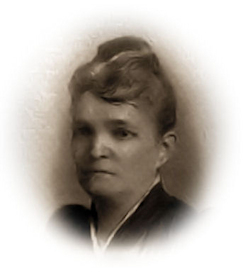April 30.—The last two weeks have glided quietly away without incident except the arrival of new neighbors—Dr. Y., his wife, two children, and servants. That a professional man prospering in Vicksburg should come now to settle in this retired place looks queer. Max said:
“H., that man has come here to hide from the conscript officers. He has brought no end of provisions, and is here for the war. He has chosen well, for this county is so cleaned of men it won’t pay to send the conscript officers here.”
Our stores are diminishing and cannot be replenished from without; ingenuity and labor must evoke them. We have a fine garden in growth, plenty of chickens, and hives of bees to furnish honey in lieu of sugar. A good deal of salt meat has been stored in the smoke-house, and, with fish in the lake, we expect to keep the wolf from the door. The season for game is about over, but an occasional squirrel or duck comes to the larder, though the question of ammunition has to be considered. What we have may be all we can have, if the war last five years longer; and they say they are prepared to hold out till the crack of doom. Food, however, is not the only want. I never realized before the varied needs of civilization. Every day something is “out.” Last week but two bars of soap remained, so we began to save bones and ashes. Annie said: “Now, if we only had some china-berry trees here we shouldn’t need any other grease. They are making splendid soap at Vicksburg with china-balls. They just put the berries into the lye and it eats them right up and makes a fine soap.” I did long for some china-berries to make this experiment. H. had laid in what seemed a good supply of kerosene, but it is nearly gone, and we are down to two candles kept for an emergency. Annie brought a receipt from Natchez for making candles of rosin and wax, and with great forethought brought also the wick and rosin. So yesterday we tried making candles. “We had no molds, but Annie said the latest style in Natchez was to make a waxen rope by dipping, then wrap it round a corn-cob. But H. cut smooth blocks of wood about four inches square, into which he set a polished cylinder about four inches high. The waxen ropes were coiled round the cylinder like a serpent, with the head raised about two inches; as the light burned down to the cylinder, more of the rope was unwound. To-day the vinegar was found to be all gone and we have started to make some. For tyros we succeed pretty well.”
Note: To protect Mrs. Miller’s job as a teacher in post-civil war New Orleans, her diary was published anonymously, edited by G. W. Cable, names were changed and initials were generally used instead of full names—and even the initials differed from the real person’s initials. (Read Dora Richards Miller’s biographical sketch.)
